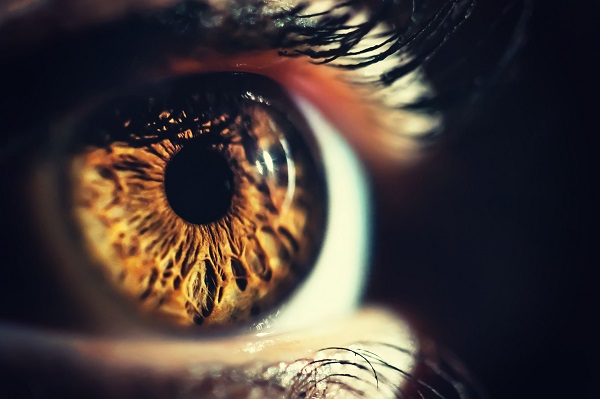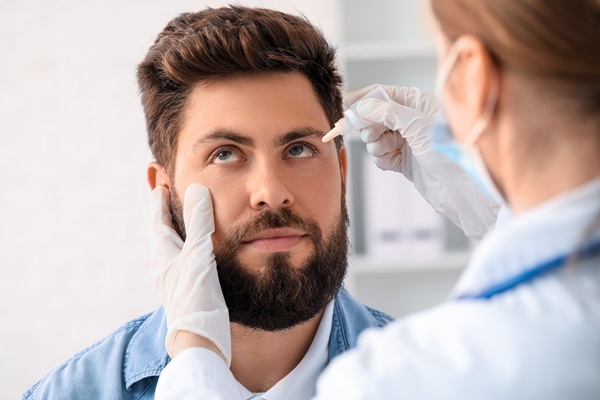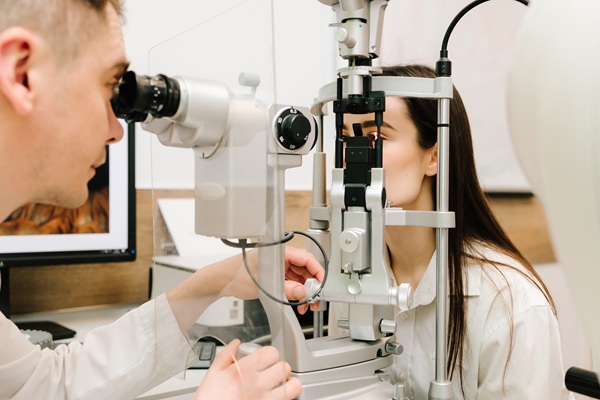Eye Care Considerations for Patients With Diabetes

If you are diabetic, eye care is essential. As a diabetic, you are at risk for diabetic retinopathy, cataracts, glaucoma and diabetic macular edema. You can reduce your risk of these diseases with proper care. Your optometrist will help you maintain your eye health, but you need to do some work too.
Eye care for diabetics
Diabetic eye care consists of more than going to the optometrist although that is very important. Patients also need to care for their eyes at home. By changing some behaviors, diabetics can keep the eyes healthy. Find out how to reduce the risk of developing eye diseases. Incorporate each tip to maintain healthy eyes.
Get annual dilated eye exams from an optometrist
People with diabetes need dilated eye exams each year. The optometrist can look at the optic nerve and retina, checking for signs of diabetic eye disease. This allows the optometrist to catch eye diseases in the early stages before symptoms appear. Early treatment makes these diseases more manageable.
Keep blood sugar under control
Controlling blood sugar is also a part of diabetic eye care. High blood sugar can cause damage to the eye’s blood vessels. Also, when the blood sugar spikes, the eyes’ lenses can change shape. This causes the vision to become blurry. Fortunately, the lenses do go back to the normal shape when the blood sugar lowers. However, the damage to the blood vessels is permanent.
Maintain a healthy blood pressure
Diabetes and high blood pressure often go hand in hand. High blood pressure is another risk factor for developing eye disease. People with diabetes need to shoot for blood pressure that is 140/90. Those who do not fall into the range need to inform the optometrist during the annual visit.
Exercise several times a week
Exercise helps people control diabetes and protect the eyes. When people exercise regularly, their glycemic control improves. This reduces the risk of diabetic eye disease. People do not need expensive gym memberships to exercise. A 30-minute walk a day will do the trick. Those who are not in good enough shape to walk for a full 30 minutes can split it up and build the stamina up over time.
Wear sunglasses
Sunglasses are critical for protecting the eyes. Eyes that are exposed to direct sunlight are at a greater risk for macular degeneration and cataracts. Since diabetics are already at an increased risk for these eye issues, sunglasses are necessary. People should wear sunglasses every time they go outside when the sun is up.
Protect your eyes
Diabetes puts you at an increased risk for developing eye diseases, but you can lower your risk by following these tips. Get a dilated eye exam from your optometrist every year. Keep your blood sugar under control and maintain healthy blood pressure. You also need to exercise several times a week. Finally, wear sunglasses when you are in direct sunlight to protect your eyes.
Request an appointment here: https://brighteyesny.com or call Bright Eyes Optometry at (914) 730-9574 for an appointment in our New Rochelle office.
Check out what others are saying about our services on Yelp: Read our Yelp reviews.
Recent Posts
Dry eye treatment can significantly improve comfort, vision, and overall quality of life for individuals dealing with this common yet often frustrating condition. Dry eye occurs when the eyes do not produce enough tears or when the tears evaporate too quickly, leading to symptoms such as burning, redness, blurred vision, and a gritty sensation. Effective…
Ophthalmologist and optometrists are two of the main eye care professionals. Both play an important part in helping you maintain the health and function of your eyes. However, while each type of eye doctor provides vision care, knowing the care you need can be confusing. Choosing the appropriate eye care provider depends on individual needs,…
Sunglasses have become a part of many people's wardrobes; however, they are also a great tool for protecting the eyes. Along with playing a large role in our daily lives, eyes are also sensitive to many things—sunlight being one of them. It is easy for one's eyes to sustain damage from direct sunlight exposure. Thankfully,…
A comprehensive eye exam does more than assess vision; it can also reveal early signs of various health conditions. Many systemic diseases affect the eyes before other symptoms appear, making regular exams essential to overall health care. Optometrists use advanced diagnostic techniques to detect conditions beyond vision problems, allowing for early intervention and treatment.Routine eye…


